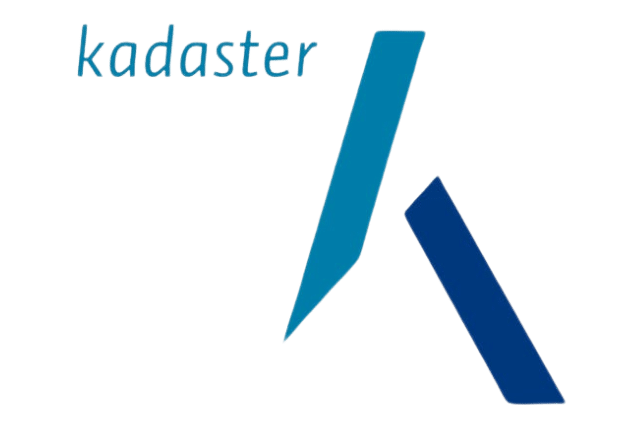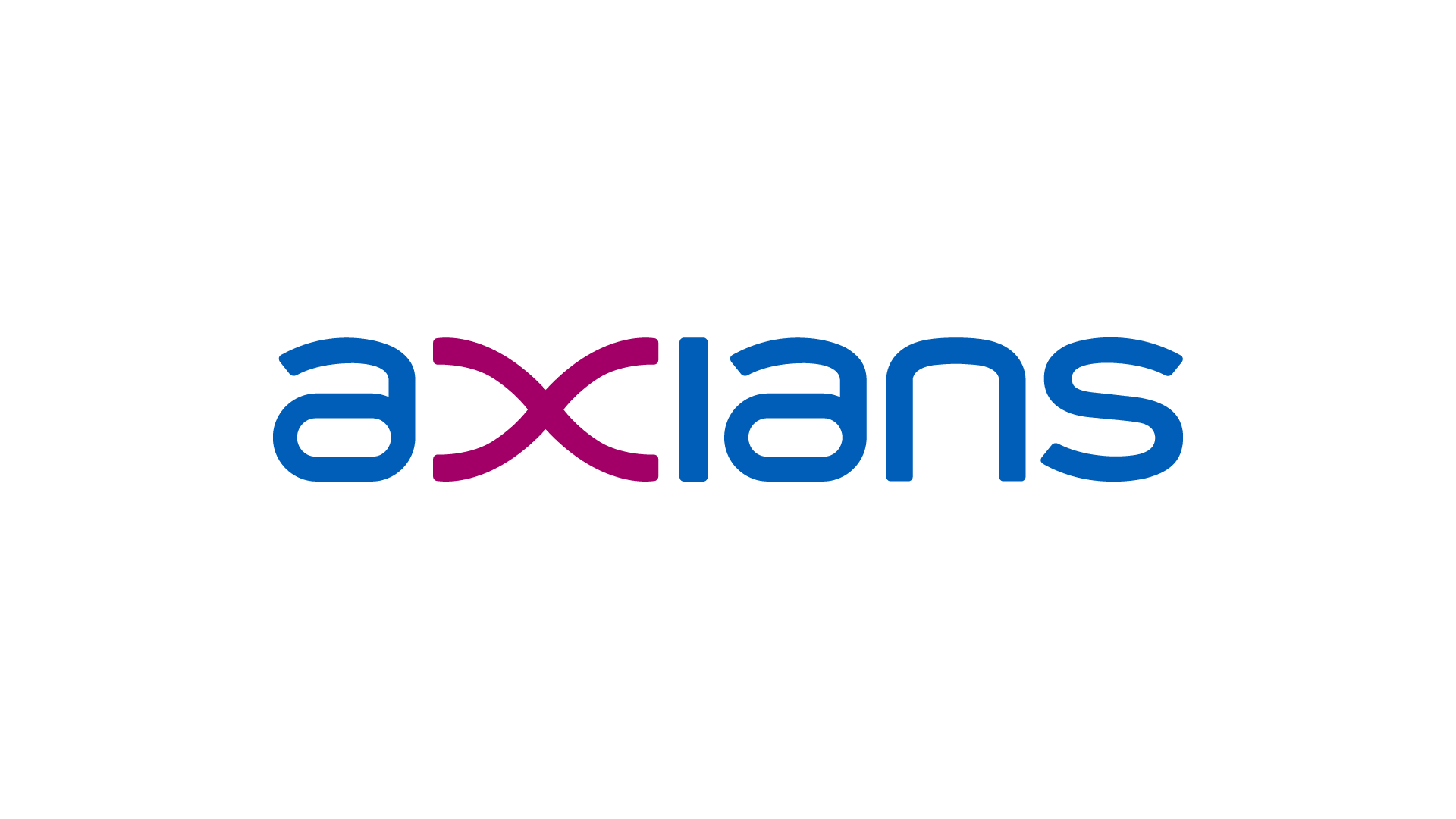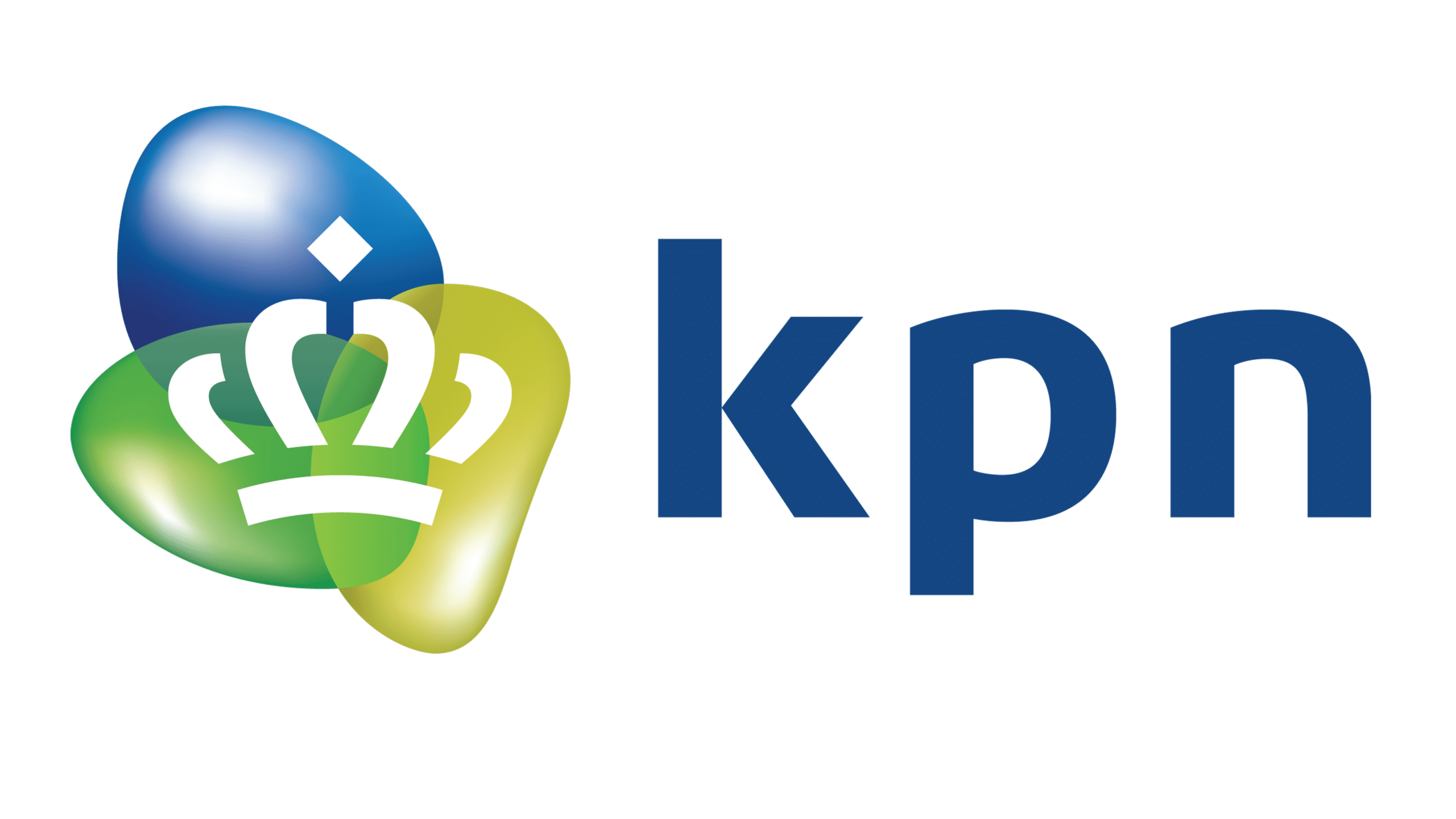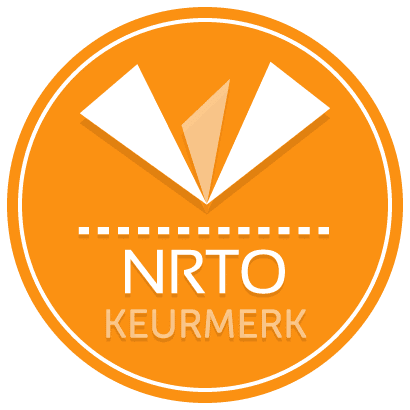Over de Cloud Applications Cosmos DB (DP-420)
De training Designing and Implementing Cloud-Native Applications Using Microsoft Azure Cosmos DB (DP-420) biedt uitgebreide informatie over cloud-native applicatieontwikkeling met een focus op Azure Cosmos DB. Duik in de essentie van het ontwikkelen, ontwerpen en implementeren van uiterst schaalbare en prestatiegerichte databasetoepassingen, speciaal afgestemd op de hedendaagse dynamische bedrijfsbehoeften.
Deze DP-420 training onthult de geheimen van het werken met Azure Cosmos DB, een toonaangevende dienst voor NoSQL-database in Microsoft Azure, bekend om zijn wereldwijde distributie en horizontale schaalbaarheid.
De training Designing and Implementing Cloud-Native Applications Using Microsoft Azure Cosmos DB (DP-420) is zowel theoretisch als praktijkgericht. Hierdoor biedt de training een holistisch begrip van cloud-native technologieën. Door deze training te volgen krijg jij diepgaand inzicht in zowel de basisbegrippen als de geavanceerde strategieën, zodat jij jouw opgedane kennis en vaardigheden direct in praktijk kunt brengen.
Let op: Er is geen examenvoucher inbegrepen bij de DP-420 training. Echter kun je de DP-420 examenvoucher eenvoudig bij ons aanschaffen.
Voor wie is de DP-420?
Deze DP-420 training is geschikt voor professionals die naar expertise in de nieuwste cloudtechnologieën streven. Of jij nu een softwareontwikkelaar, een ICT-projectmanager, een systeemarchitect, of een datawetenschapper bent, deze training biedt jou de benodigde kennis en vaardigheden om geavanceerde, cloud-native applicaties te ontwerpen en te implementeren.
Deze DP-420 training is met name geschikt voor de volgende mensen:
- Softwareontwikkelaars
- Leer hoe jij krachtige, schaalbare applicaties kunt ontwikkelen die optimaal gebruikmaken van Azure Cosmos DB. Deze training zal jouw vaardigheden in cloudapplicatieontwikkeling aanscherpen, zodat jij in staat bent om complexe data-intensieve applicaties te ontwerpen en je voor te bereiden op uitdagingen binnen de hedendaagse ICT-sector.
- ICT-projectmanagers
- Verkrijg diepgaande inzichten in de planning en implementatie van cloudprojecten. Deze training zal jouw kennis van cloudtechnologieën verbeteren, waardoor jij effectiever projecten kunt leiden die gericht zijn op innovatie en technologische vooruitgang.
- Systeembeheerders en cloudspecialisten
- Vergroot jouw kennis en vaardigheden voor het ontwerpen van hoog beschikbare, schaalbare en veilige cloudarchitecturen met Azure Cosmos DB. Deze training zal jou uitrusten met geavanceerde technieken voor het ontwerpen van systemen die optimaal gebruikmaken van de capaciteiten van de cloud.
- Datawetenschappers en data-analisten
- Ontdek hoe jij door middel van Azure Cosmos DB complexe datasets kunt beheren en analyseren. Leer hoe jij deze kennis kunt gebruiken om krachtige datagestuurde besluitvormingsprocessen te ondersteunen.
Leerdoelen van de DP-420
Door deel te nemen aan de training Designing and Implementing Cloud-Native Applications Using Microsoft Azure Cosmos DB (DP-420) zul je niet alleen jouw kennis verbeteren, maar zul je ook worden uitgerust met de benodigde vaardigheden die jij toe kunt passen in professionele omgevingen.
Door deze DP-420 training te volgen zul je de volgende kennis en vaardigheden verkrijgen:
- Het aanmaken en configureren van een account, database en container binnen Azure Cosmos DB SQL API.
- De .NET SDK gebruiken om bronnen te beheren en bewerkingen uit te voeren.
- Zoekopdrachten van variërende complexiteit uitvoeren.
- Een strategie voor datamodellering en -partitionering ontwerpen.
- Zoekopdrachten en indexen optimaliseren op basis van de kenmerken van een applicatie.
- De Azure Resource Manager gebruiken om accounts en bronnen te beheren met CLI of JSON en Bicep-sjablonen.
Aanbevolen voorkennis DP-420
Voordat jij deelneemt aan deze DP-420 training raden wij aan dat jij over de volgende kennis en vaardigheden beschikt:
- Kennis van Microsoft Azure en praktijkervaring in Azure Portal
- Voor deze training is het van belang dat jij beschikt over een goede kennis van Microsoft Azure, vergelijkbaar met het niveau van de training Microsoft Azure Fundamentals (AZ-900). Dit omvat het vermogen om efficiënt te navigeren binnen Microsoft Azure, wat cruciaal is voor het beheren en implementeren van cloudoplossingen.
- Praktijkervaring in Power BI
- Ervaring met het ontwerpen en ontwikkelen van schaalbare datamodellen, het opschonen en transformeren van data en het mogelijk maken van geavanceerde analytische mogelijkheden die betekenisvolle bedrijfswaarde bieden met Microsoft Power BI. Deze onderwerpen komen aan bod in de training Microsoft Power BI Data Analyst (PL-300).
Onderwerpen van de DP-420
DP-420 | Module 1: Aan de slag met Azure Cosmos DB SQL API
Moderne apps floreren op real-time data uit verschillende bronnen en in verschillende vormen. Deze apps vereisen een moderne database die de variëteit en snelheid van gegevens kan verwerken. In deze module verkennen we Azure Cosmos DB en hoe de SQL API enkele van de problemen kan oplossen die moderne applicaties met zich meebrengen.
Onderwerpen:
- Introductie tot Azure Cosmos DB SQL API.
- Azure Cosmos DB SQL API uitproberen.
Lab: Oefening: Een Azure Cosmos DB SQL API-account aanmaken
Na het voltooien van deze module kunnen deelnemers:
- Evalueren of Azure Cosmos DB SQL API de juiste database is voor hun applicatie.
- Beschrijven hoe de functies van de Azure Cosmos DB SQL API geschikt zijn voor moderne applicaties.
- Een nieuw Azure Cosmos DB SQL API-account aanmaken.
- Database-, container- en itemresources aanmaken voor een Azure Cosmos DB SQL API-account.
DP-420 | Module 2: Azure Cosmos DB SQL API plannen en implementeren
Het aanmaken van een nieuw Azure Cosmos DB-account vereist vaak veel configuratiekeuzes, wat in het begin ontmoedigend kan zijn. Hoewel de standaardinstellingen geschikt zijn voor veel scenario’s, is het verstandig om je vertrouwd te maken met de configuratieopties om ervoor te zorgen dat je account en resources optimaal zijn geconfigureerd voor je oplossing. In deze module leer je hoe je een Azure Cosmos DB-account en resources voorbereidt en configureert voor een nieuwe oplossing.
Onderwerpen:
- Resourcevereisten plannen.
- Azure Cosmos DB SQL API-databases en containers configureren.
- Gegevens verplaatsen van en naar Azure Cosmos DB SQL API.
Lab: Oefening: Doorvoer configureren voor Azure Cosmos DB SQL API met de Azure Portal
Lab: Oefening: Bestaande gegevens migreren met Azure Data Factory
Na het voltooien van deze module kunnen deelnemers:
- De verschillende vereisten van hun applicatie evalueren.
- Plannen voor schaal- en retentievereisten.
- Doorvoerallocatie configureren.
- TTL-waarden (time-to-live) configureren.
- Gegevens migreren met Azure-services.
- Gegevens migreren met Spark of Kafka.
DP-420 | Module 3: Verbinden met Azure Cosmos DB SQL API met de SDK
Er zijn verschillende SDK's beschikbaar om verbinding te maken met de Azure Cosmos DB SQL API vanuit veel populaire programmeertalen, waaronder maar niet beperkt tot .NET (C#), Java, Python en JavaScript (Node.js). In deze module ga je praktisch aan de slag met de .NET SDK voor de Azure Cosmos DB SQL API.
Onderwerpen:
- De Azure Cosmos DB SQL API SDK gebruiken.
- De Azure Cosmos DB SQL API SDK configureren.
Lab: Oefening: De Azure Cosmos DB SQL API SDK configureren voor offline ontwikkeling
Lab: Oefening: Verbinding maken met Azure Cosmos DB SQL API met de SDK
Na het voltooien van deze module kunnen deelnemers:
- De Microsoft.Azure.Cosmos SDK-bibliotheek integreren vanuit NuGet.
- Verbinden met een Azure Cosmos DB SQL API-account met behulp van de SDK en .NET.
- De SDK configureren voor offline ontwikkeling.
- Veelvoorkomende verbindingsfouten oplossen.
- Parallelisme implementeren in de SDK.
- Logging configureren met behulp van de SDK.
DP-420 | Module 4: Toegang tot en beheer van gegevens met de Azure Cosmos DB SQL API SDK’s
De SQL API SDK voor Azure Cosmos DB wordt gebruikt om verschillende bewerkingen uit te voeren, transacties uit te voeren en bulkgegevens te verwerken. In deze module gebruik je de SDK om documenten afzonderlijk of in groepen te manipuleren.
Onderwerpen:
- Azure Cosmos DB SQL API-puntbewerkingen implementeren.
- Transacties uitvoeren over meerdere documenten met de Azure Cosmos DB SQL API.
- Bulkgegevens verwerken in Azure Cosmos DB SQL API.
Lab: Oefening: Documenten maken en bijwerken met de Azure Cosmos DB SQL API SDK
Lab: Oefening: Meerdere puntbewerkingen samenvoegen met de Azure Cosmos DB SQL API SDK
Lab: Oefening: Meerdere documenten in bulk verplaatsen met de Azure Cosmos DB SQL API SDK
Na het voltooien van deze module kunnen deelnemers:
- CRUD-bewerkingen uitvoeren met de SDK.
- TTL configureren voor een specifiek document.
- Optimistische gelijktijdigheidscontrole implementeren voor een bewerking.
- Een transactionele batch maken en de resultaten beoordelen.
- Een bulkbewerking uitvoeren.
- De resultaten van een bulkbewerking beoordelen.
- Beste werkwijzen voor bulkbewerkingen implementeren.
DP-420 | Module 5: Queries uitvoeren in Azure Cosmos DB SQL API
De Azure Cosmos DB SQL API ondersteunt Structured Query Language (SQL) als een JSON-querytaal. In deze module leer je hoe je efficiënte queries maakt met behulp van de SQL-querytaal.
Onderwerpen:
- De Azure Cosmos DB SQL API queryen.
- Complexe queries maken met de Azure Cosmos DB SQL API.
Lab: Oefening: Resultaten van cross-productqueries pagineren met de Azure Cosmos DB SQL API SDK
Lab: Oefening: Een query uitvoeren met de Azure Cosmos DB SQL API SDK
Na het voltooien van deze module kunnen deelnemers:
- Een SQL-query maken en uitvoeren.
- Queryresultaten projecteren.
- Ingebouwde functies gebruiken in een query.
- Een gecorreleerde subquery implementeren.
- Een cross-productquery maken.
DP-420 | Module 6: Een indexeringsstrategie definiëren en implementeren voor Azure Cosmos DB SQL API
Standaard indexeert Azure Cosmos DB automatisch alle paden van documenten die worden opgeslagen met behulp van de SQL API. Dit is ideaal voor het ontwikkelen van nieuwe applicaties, omdat je vrijwel onmiddellijk complexe queries kunt maken. Naarmate je applicatie volwassener wordt, kun je je indexeringsbeleid aanpassen aan de behoeften van je oplossing. In deze module leer je hoe je een aangepast indexeringsbeleid maakt.
Onderwerpen:
- Indexen definiëren in Azure Cosmos DB SQL API.
- Indexen aanpassen in Azure Cosmos DB SQL API.
Lab: Oefening: Het standaard indexeringsbeleid beoordelen voor een Azure Cosmos DB SQL API-container met de portal
Lab: Oefening: Het indexeringsbeleid van een Azure Cosmos DB SQL API-container configureren met de portal
Na het voltooien van deze module kunnen deelnemers:
- Het standaard indexeringsbeleid voor een SQL API-container bekijken en begrijpen.
- Het indexeringsbeleid voor een container aanpassen.
- Een samengestelde index gebruiken in een indexeringsbeleid.
DP-420 | Module 7: Azure Cosmos DB SQL API integreren met Azure-services
Azure Cosmos DB heeft een nauwe integratie met vele andere Azure-services, zoals Azure Functions, Azure Cognitive Search, Azure Event Hubs, Azure Storage, Azure Data Factory en Azure Stream Analytics.
Verder kun je de change feed gebruiken om Azure Cosmos DB te integreren met vele andere services, zowel binnen als buiten Azure. In deze module integreren we Azure Cosmos DB met zowel Azure Functions als Azure Cognitive Search. We verkennen ook de change feed met behulp van de SDK.
Onderwerpen:
- Een Azure Cosmos DB SQL API change feed gebruiken met de SDK.
- Gebeurtenissen afhandelen met Azure Functions en de Azure Cosmos DB SQL API change feed.
- Gegevens van Azure Cosmos DB SQL API doorzoeken met Azure Cognitive Search.
Lab: Oefening: Gegevens van Azure Cosmos DB SQL API archiveren met Azure Functions
Lab: Oefening: Change feed-gebeurtenissen verwerken met de Azure Cosmos DB SQL API SDK
Lab: Oefening: Gegevens archiveren met Azure Functions en Azure Cosmos DB SQL API
Na het voltooien van deze module kunnen deelnemers:
- Change feed-gebeurtenissen verwerken met de SDK.
- Beste werkwijzen implementeren voor de change feed.
- Een Azure Functions-trigger maken voor Azure Cosmos DB.
- Een Azure Functions-input maken voor Azure Cosmos DB.
- Azure Cosmos DB-gegevens indexeren in Azure Cognitive Search.
DP-420 | Module 8: Een datamodellerings- en partitioneringsstrategie implementeren voor Azure Cosmos DB SQL API
Azure Cosmos DB is zowel horizontaal schaalbaar als niet-relationeel. Om dit niveau van schaalbaarheid te bereiken, moeten gebruikers de concepten, technieken en technologieën begrijpen die uniek zijn voor NoSQL-databases voor het modelleren en partitioneren van gegevens. In deze module leer je hoe je gegevens kunt modelleren en partitioneren voor een NoSQL-database zoals de Azure Cosmos DB SQL API.
Onderwerpen:
- Gegevens modelleren en partitioneren in Azure Cosmos DB.
- Databases optimaliseren met geavanceerde modelleringspatronen voor Azure Cosmos DB.
Lab: Oefening: De prestaties van klantentiteiten meten
Lab: Oefening: Geavanceerde modelleringspatronen
Na het voltooien van deze module kunnen deelnemers:
- Toegangsmodellen identificeren voor een bestaande applicatie.
- Bepalen wanneer gegevens moeten worden ingebed of verwezen.
- De change feed gebruiken om referentiële integriteit te beheren.
- Meerdere entiteiten combineren in één container.
- Geaggregeerde gegevens denormaliseren in een enkele container.
DP-420 | Module 9: Een replicatiestrategie ontwerpen en implementeren voor Azure Cosmos DB SQL API
Moderne applicaties moeten zeer responsief en altijd online zijn. Om lage latentie en hoge beschikbaarheid te bereiken, moeten instances van deze applicaties worden ingezet in datacenters die dicht bij hun gebruikers staan. In deze module leer je hoe je gegevens repliceert en consistentie beheert over de hele wereld met Azure Cosmos DB SQL API.
Onderwerpen:
- Replicatie configureren en failovers beheren in Azure Cosmos DB.
- Consistentiemodellen gebruiken in Azure Cosmos DB SQL API.
- Multi-regio schrijven configureren in Azure Cosmos DB SQL API.
Lab: Oefening: Consistentiemodellen configureren in de portal en de Azure Cosmos DB SQL API SDK
Lab: Oefening: Verbinding maken met verschillende regio's met de Azure Cosmos DB SQL API SDK
Lab: Oefening: Verbinding maken met een multi-regio schrijfaccount met de Azure Cosmos DB SQL API SDK
Na het voltooien van deze module kunnen deelnemers:
- Gegevens distribueren over verschillende geografische locaties.
- Automatische failover-beleidsregels definiëren.
- Handmatige failovers uitvoeren.
- Het standaard consistentiemodel configureren.
- Het consistentiemodel per sessie wijzigen.
- Multi-regio schrijven configureren in de SDK.
- Een aangepast conflictoplossingsbeleid maken.
DP-420 | Module 10: Queryprestaties optimaliseren in Azure Cosmos DB SQL API
Azure Cosmos DB biedt een uitgebreide set databasebewerkingen die worden uitgevoerd op de items binnen een container. De kosten die aan deze bewerkingen zijn verbonden, variëren afhankelijk van de CPU, IO en het geheugen dat nodig is om de bewerking te voltooien. In deze module leer je hoe je indexeringsbeleid kunt beheren en queries kunt bewerken om de kosten per query-aanvraag (RU) te minimaliseren.
Onderwerpen:
- Indexen kiezen in Azure Cosmos DB SQL API.
- Queries optimaliseren in Azure Cosmos DB SQL API.
- Geïntegreerde cache implementeren.
Lab: Oefening: Het indexeringsbeleid van een Azure Cosmos DB SQL API-container optimaliseren voor veelvoorkomende bewerkingen
Lab: Oefening: Het indexeringsbeleid van een Azure Cosmos DB SQL API-container optimaliseren voor een specifieke query
Na het voltooien van deze module kunnen deelnemers:
- Leesintensieve versus schrijfintensieve indexpatronen beoordelen en vergelijken.
- Het indexeringsbeleid bijwerken om de prestaties van de index te optimaliseren.
- De kosten van een query meten in request units (RU's).
- De kosten van puntbewerkingen meten.
- Werken met geïntegreerde cache voor items en queries.
- Geïntegreerde cache-veroudering configureren.
DP-420 | Module 11: Beheer- en monitortaken voor een Azure Cosmos DB SQL API-oplossing
Wanneer je kritieke applicaties en bedrijfsprocessen hebt die afhankelijk zijn van Azure-resources zoals Azure Cosmos DB, wil je die resources bewaken op beschikbaarheid, prestaties en werking. In deze module leer je hoe je gebeurtenissen en prestaties van een Azure Cosmos DB-account kunt monitoren. Je leert ook hoe je gangbare beveiligingsmaatregelen implementeert samen met back-up en herstel in Azure Cosmos DB.
Onderwerpen:
- Prestaties meten in Azure Cosmos DB SQL API.
- Reacties en gebeurtenissen monitoren in Azure Cosmos DB SQL API.
- Back-up en herstel implementeren voor Azure Cosmos DB SQL API.
- Beveiliging implementeren in Azure Cosmos DB SQL API.
Lab: Oefening: Een applicatieprobleem oplossen met de Azure Cosmos DB SQL API SDK
Lab: Oefening: Azure Monitor gebruiken om een Azure Cosmos DB SQL API-account te analyseren
Lab: Oefening: Een database of container herstellen vanaf een herstelpunt
Lab: Oefening: Azure Cosmos DB SQL API-accountsleutels opslaan in Azure Key Vault
Na het voltooien van deze module kunnen deelnemers:
- Rate-limiting gebeurtenissen observeren in een container of database.
- Resource logs queryen met Azure Monitor.
- Tijdelijke en rate-limiting fouten beoordelen en observeren.
- Waarschuwingen configureren.
- Continue back-up en herstel configureren.
- Herstel uitvoeren naar een specifiek herstelpunt.
- Rolgebaseerde toegangscontrole (RBAC) gebruiken.
- Accountresources benaderen met Azure AD en Microsoft Identity Platform.
DP-420 | Module 12: Een Azure Cosmos DB SQL API-oplossing beheren met DevOps-praktijken
Als een Azure Cosmos DB SQL API-account klaar is om door een releaselevenscyclus te gaan, is het niet ongebruikelijk dat een operationeel team probeert de creatie van Azure Cosmos DB-resources in de cloud te automatiseren. Automatisering maakt het gemakkelijker om nieuwe omgevingen te implementeren, eerdere omgevingen te herstellen of een service uit te breiden.
In deze module leer je hoe je Azure Resource Manager kunt gebruiken om een Azure Cosmos DB-account en de bijbehorende child-resources te beheren met behulp van JSON-sjablonen, Bicep-sjablonen of de Azure CLI.
Onderwerpen:
- Scripts schrijven voor Azure Cosmos DB SQL API.
- Een resource-sjabloon maken voor Azure Cosmos DB SQL API.
Lab: Oefening: De provisioned throughput aanpassen met een Azure CLI-script
Lab: Oefening: Een Azure Cosmos DB SQL API-container maken met behulp van Azure Resource Manager-sjablonen
Na het voltooien van deze module kunnen deelnemers:
- Argumenten, groepen en subgroepen bekijken voor een specifieke CLI-opdracht.
- Azure Cosmos DB-accounts, databases en containers maken met behulp van de CLI.
- Een indexeringsbeleid beheren met behulp van de CLI.
- Database- of containerdoorvoer configureren met de CLI.
- Failovers starten en failover-regio's beheren met behulp van de CLI.
- De drie meest voorkomende resourcetypes voor Azure Cosmos DB SQL API-accounts identificeren.
- Een JSON Azure Resource Manager-sjabloon maken en implementeren voor Azure Cosmos DB SQL API.
- Een Bicep Azure Resource Manager-sjabloon maken en implementeren voor Azure Cosmos DB SQL API.
- Doorvoer- en indexeringsbeleidsregels beheren met JSON- of Bicep-sjablonen.
DP-420 | Module 13: Server-side programmeerconstructies maken in Azure Cosmos DB SQL API
Azure Cosmos DB biedt taalgeïntegreerde, transactionele uitvoering van JavaScript. Bij gebruik van de SQL API in Azure Cosmos DB kun je opgeslagen procedures, triggers en door gebruikers gedefinieerde functies (UDF's) schrijven in de JavaScript-taal. In deze module schrijf je JavaScript-logica die rechtstreeks binnen de database-engine wordt uitgevoerd.
Onderwerpen:
- Meerdere itemtransacties maken met de Azure Cosmos DB SQL API.
- Query- en transactiefunctionaliteit uitbreiden in Azure Cosmos DB SQL API.
Lab: Oefening: Een UDF implementeren en gebruiken met de SDK
Lab: Oefening: Een opgeslagen procedure maken met de Azure Portal
Na het voltooien van deze module kunnen deelnemers:
- Een opgeslagen procedure maken.
- Een transactie van een opgeslagen procedure terugdraaien.
- Een UDF maken.
- Pre-* en post-* triggers maken.


























